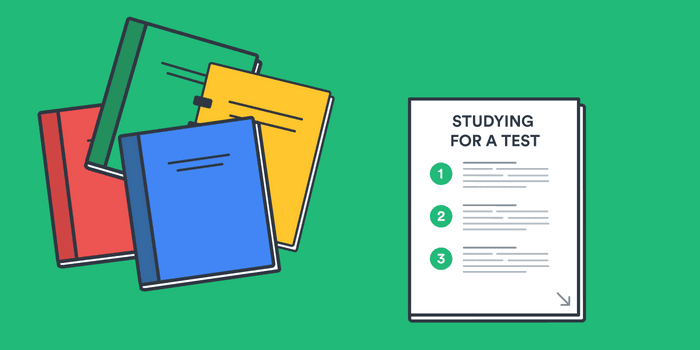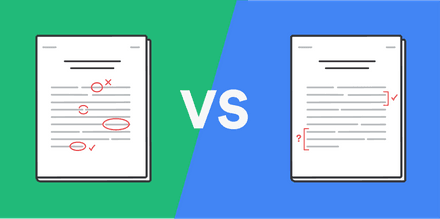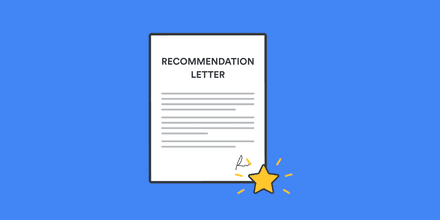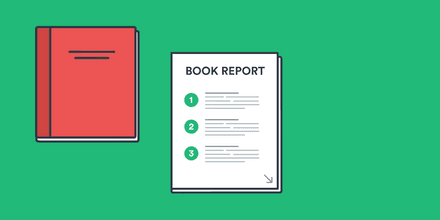
As a high school senior or university undergrad, there’s one thing you probably have to deal with often - and we’re not talking about the challenge of resisting eating spicy cheese snacks for breakfast, lunch, and dinner. What we’re referring to is tests - that unavoidable academic challenge that requires us to prove we’ve actually been going to class all semester.
All jokes aside, figuring out how to best study for a test in order to get the highest possible grade can be challenging. That’s why we’ve compiled eleven of the best study tips for you in this article. Follow them and you should be less stressed, better prepared, and set up for ultimate success on your next exam.
Timing tips
A huge part of having good study skills is cultivating the ability to properly manage your schedule so that you have enough time to go over all of the relevant material before test day comes. Here are some time-management tips that should make a big difference in your pre-test stress levels and stop you from having to cram.
1. Start early
The best way to do poorly on a test and cause yourself lots of unnecessary pressure is to start studying too late. That’s why it’s so important to do your best to start studying as early as you possibly can.
As long as you have enough notice about the date of your upcoming test, try giving yourself at least a week of study time. If you don’t have a week, shoot for three days at the very minimum. That way, you won’t end up staying up late or pulling all-nighters before your test, which is a surefire way to stress out your brain and body and hinder your performance.
2. Make a schedule
Whether you’re studying for a single exam or have a whole finals week’s worth of tests on your plate, scheduling out your study sessions is a very useful way to ensure that you’ll actually have the time to cover all of the topics you need to study.
When you have a two or three-hour study session booked in your calendar, with nothing else planned for the same time window, you’re much more likely to actually get your studying in as opposed to what happens when you just hope you’ll happen to magically find the time to study somewhere within your busty schedule.
3. Don’t tire yourself out
Often, students find themselves studying in exhausting, hours-long, marathon study sessions fueled by too much coffee and energy drinks. But after four or five hours of studying, your brain will just be too tired to take in any more information. So instead, try to keep your study sessions to three hours maximum so as not to overwork yourself in any single session and start seeing diminishing returns.
4. Use the Pomodoro method
Breaks are a necessary part of studying, but it’s easy to take too many and find yourself only getting half an hour of real studying done in your entire planned three-hour session. In order to make sure you give yourself enough rest but don’t overdo it on the breaks, try using the Pomodoro method, which involves using a timer to alternate 25-minute focused work sessions with 5-minute breaks.
Study strategies
Another important facet of study success is choosing the methods you use to actually review the material. Because just reading a textbook over and over again isn’t enough, here are some suggestions for study strategies that really work.
5. Create a study group
We all know that multiple people are smarter than just one, so why not capitalize on the power of the collective by creating a study group? This way, you can ask questions to get help with concepts you’re struggling with, as well as help teach other people about the topics they’re not as strong on.
6. Teach somebody else
In fact, teaching the other students in your study group the concepts that will be on your test won’t just help them; it’ll help you, too. That’s right, the process of verbally explaining a concept to somebody can tremendously help solidify that concept in your own brain, helping you remember it for the test.
7. Use flashcards
They’re a classic study tool for a reason: flashcards are incredibly effective at helping you remember vocabulary words and concepts. Plus, they’re especially great because they can be used when studying with others or by yourself, so you can even quiz yourself when you have 10 extra minutes of free time on the bus on the way to your study session.
8. Make a cheat sheet (whether or not you can use it)
If you’re lucky, your teacher or professor might allow you to create and use a cheat sheet during your test on which you can write formulas, concepts, and notes for reference. But even if your teacher won’t actually let you use one on the exam, creating a cheat sheet is still a great study tool because it forces you to identify and review the most important concepts that will be on your test.
9. Use the study guide
There is no more useful tool for studying for a test than the study guide your teacher or professor will hopefully give you. That’s because study guides help you focus on the material that will actually be relevant to the test rather than all of the topics you covered the whole semester, some of which will just be a waste of your time to study.
Unfortunately, not all tests come with a study guide. But even if your teacher or professor doesn’t take the initiative to create a study guide for you, don’t hesitate to go out of your way to ask them to give you a sense of what material will actually be on the exam. At worst, they’ll say no. But at best, they’ll help you figure out what concepts to focus your studying time on.
Study hacks
Finally, here are some study hacks that capitalize on the way your brain and physiology work to help you get the best possible chance of being able to successfully retrieve and apply all of that information that you’ve so dutifully studied when following the previous tips we’ve shared so far on this list.
10. Recreate the same circumstances
Studies show that it’s easier to remember academic material when you’re in a similar environment or under similar circumstances to the ones you studied in. So whether you chew the same flavor of gum while studying as you do during your test, use the same pen, or make an effort to study in the room where the test will be given (if that’s possible), try recreating the same circumstances for your study sessions and your test.
11. Get plenty of sleep
We already mentioned that you should avoid all-nighters (see tip number one above), but we can’t stress enough how important it is not to fall into this trap that so many students tend to fall into. All-nighters might seem like a good idea at the time, but taking a test under the conditions of sleep deprivation is just asking for failure.
Instead, give your body and brain the best possible chances for success by getting a good night’s sleep before your test (and drinking plenty of water and consuming healthy, nutrient-rich foods).
If you follow these tips, we can’t guarantee you’ll ace your test, but we can say your chances of getting a grade you’re happy with will skyrocket. Good luck!
Frequently Asked Questions about studying for a test
🏔️ Should I study right before a test?
The best way to do poorly on a test and cause yourself lots of unnecessary pressure is to start studying too late. That’s why it’s so important to do your best to start studying as early as you possibly can. As long as you have enough notice about the date of your upcoming test, try giving yourself at least a week of study time. If you don’t have a week, shoot for three days at the very minimum.
✍️ What is the best time to study?
According to PSB Academy, the best time to study is between 10 am to 2 pm and from 4 pm to 10 pm, when the brain is in an acquisition mode. But at the end of the day, it depends on you and your preferences when the best time to study is for you. Try studying at different times of the day to see what's most effective for you.
🧐 How many hours a day should you study?
Exhausting, hour-long marathon study sessions will only lead to your brain being too tired to take in any more information. Start studying early enough - don't put it off until the end. Keep your study sessions to three hours maximum so as not to overwork yourself in any single session and start seeing diminishing returns.
🍇 Is it unhealthy to study too much?
It is very unhealthy to study too much. Not only can studying too much lead to a burn out, but it can also have a negative impact on your grade. If you don't rest and take breaks, you won't be able to memorize everything and might be tired and lacking in concentration on the test day.
🛎️ What should I do 20 minutes before an exam?
20 minutes before your exam, you should just try to relax and get ready for the exam. Make sure you have something to drink, you ate before, went to the bathroom, and prepared all the materials (like pens) you might need for the exam. Try to stay calm and if that is difficult for you, work with whatever helps you relax like listening to a good song. At this point, you cannot squeeze any more information into your brain.


